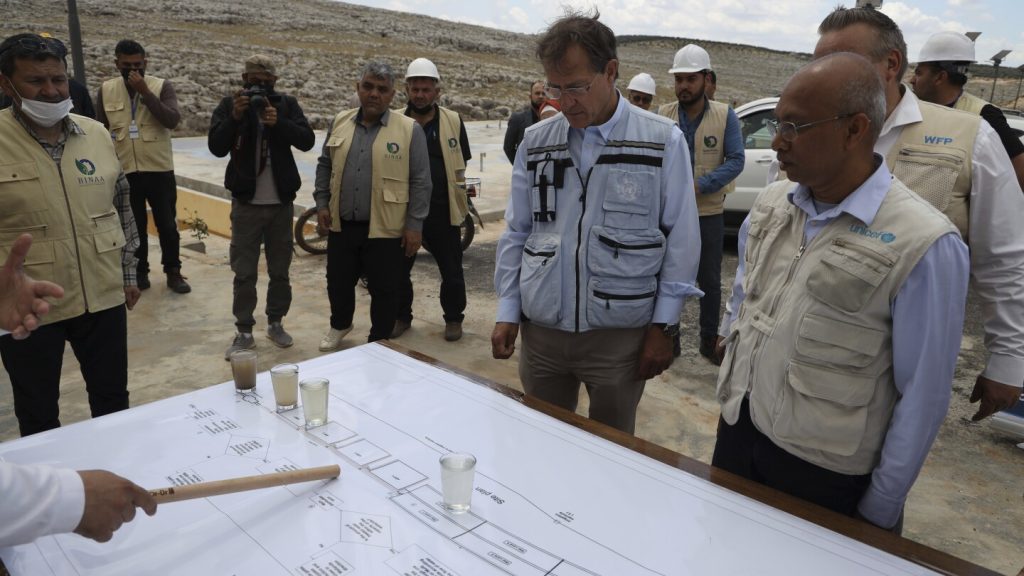Living in a tent in rebel-held northwestern Syria, Rudaina al-Salim and her family struggle to find enough water for drinking and other basic needs such as cooking and washing. Their encampment north of the city of Idlib hasn’t seen any aid in six months. Al-Salim’s story is similar to that of many in this region of Syria, where most of the 5.1 million people have been internally displaced in the country’s civil war and rely on aid to survive. The wars in Ukraine, Sudan, and Israel’s conflict with Hamas have taken precedence in the global spotlight, leaving Syria’s crisis largely ignored.
Syria’s 14-year civil war has resulted in the deaths of nearly half a million people and the displacement of half the country’s pre-war population. Millions of Syrians are now living in poverty and struggling to access food and healthcare as the economy deteriorates. Neighboring countries hosting Syrian refugees are also facing challenges of their own and are growing increasingly hostile towards the influx of refugees. Aid organizations are now appealing to donors ahead of a fundraising conference in Brussels for Syria, but they fear that pledges will fall short, leading to further aid cuts.
The United Nations World Food Program has seen a drastic reduction in its aid efforts in Syria, from assisting 5.5 million people a year to only 1.5 million. Just 6% of the UN’s appeal for aid to Syria in 2024 has been secured, with millions of Syrians facing food insecurity across the country. The upcoming Brussels conference aims to raise over $4 billion in lifesaving aid to support the millions of Syrians in need within the war-torn country and in neighboring nations. Last year’s conference saw donors pledging $10.3 billion, but the needs continue to grow.
In northwestern Syria, aid is described as a matter of life and death, with health facilities facing closure due to funding shortages. Syrians in Lebanon, where nearly 90% of refugees live in poverty, are also facing declining aid and increased resentment from the Lebanese population. Calls for crackdowns on undocumented migrants and demands for refugees to return to Syria’s so-called safe zones have been met with opposition from humanitarian organizations and Western governments. Syrian refugees like Um Omar in Lebanon fear deportation to Syria, where their safety and livelihoods are at risk.
Um Omar, a Syrian refugee living in Lebanon, works in a grocery store to support her family. Her husband, fearing for their safety, has stopped working as a day laborer. The family faces hostility and resentment from some Lebanese citizens who blame them for their economic struggles. Despite the challenges, Um Omar remains fearful of the consequences of returning to Syria, where the government of Bashar Assad remains in power. Many Syrians in Lebanon face similar challenges and fears, with no easy solutions in sight. The humanitarian crisis in Syria continues to worsen, leaving millions in dire need of assistance and support.


